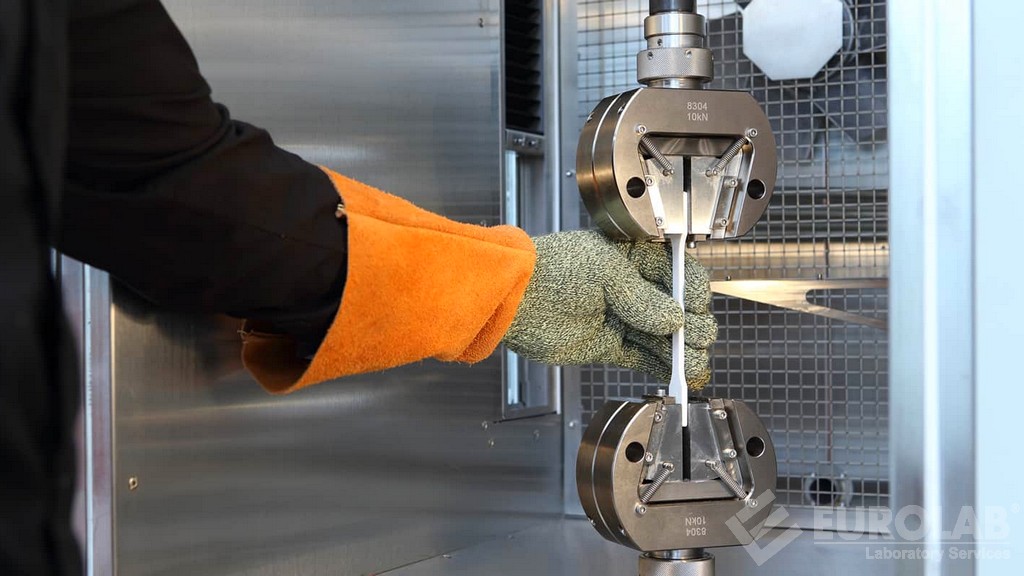JIS K3362 Corrosion Inhibitor Testing for Oilfield Chemicals
The JIS K3362 standard is a critical tool in ensuring the reliability and longevity of oilfield equipment by evaluating corrosion inhibitors used in production chemicals. This testing method assesses the effectiveness of corrosion inhibitors against various corrosive environments encountered in oil and gas extraction processes.
Corrosion inhibitors play a vital role in protecting metal components from degradation, thereby enhancing operational efficiency and safety within the oil and gas sector. The JIS K3362 test method specifically targets inhibitors used in environments where carbon steel is exposed to hydrogen sulfide (H₂S) containing waters or gases. This makes it essential for ensuring that the chemicals employed are not only effective but also environmentally friendly and cost-effective.
The testing procedure involves exposing specimens to a controlled environment designed to simulate real-world conditions encountered during oilfield operations. Parameters such as temperature, humidity, and the presence of hydrogen sulfide are carefully regulated to ensure accurate results. The specimen is then analyzed for any signs of corrosion or degradation over a specified period.
The JIS K3362 test method also considers the potential impact on the environment by ensuring that the inhibitors used do not introduce harmful substances into the oilfield environment. This aligns with broader sustainability goals within the industry, promoting the use of eco-friendly chemicals.
Understanding the nuances of this testing method is crucial for quality managers and compliance officers who need to ensure their processes meet international standards. For R&D engineers and procurement professionals, mastering JIS K3362 can significantly enhance product development and sourcing strategies, ensuring that the correct inhibitors are selected for specific applications.
By adhering to this rigorous testing protocol, companies in the oil and gas sector can minimize maintenance costs, extend equipment lifespan, and ensure regulatory compliance. This not only enhances operational efficiency but also contributes positively to environmental conservation efforts within the industry.
| Absence of Corrosion | Chemical Composition | Environmental Impact | Testing Duration |
|---|---|---|---|
| Indicated by stable weight and appearance after testing | Typically includes nitrogen, phosphorus, boron, or organic compounds | Evaluation of biodegradability and toxicity levels | Varies from 24 hours to 1 week depending on specific inhibitors |
The JIS K3362 method is not only about ensuring the chemical's effectiveness but also its compatibility with existing infrastructure. This comprehensive approach ensures that the chosen corrosion inhibitor will perform optimally in real-world conditions, thereby enhancing overall operational efficiency and safety.
By leveraging this testing method, companies can confidently select inhibitors that meet both performance and environmental standards, leading to more sustainable and reliable oilfield operations. This not only enhances their competitive edge but also contributes positively to the broader goals of sustainability within the industry.
Why It Matters
The significance of JIS K3362 testing lies in its ability to ensure that corrosion inhibitors used in oilfield chemicals are both effective and environmentally friendly. This is particularly important given the harsh conditions under which these chemicals operate, where carbon steel components may come into contact with hydrogen sulfide-containing waters or gases.
The effectiveness of a corrosion inhibitor can significantly impact the longevity and integrity of equipment within an oilfield setting. Poorly performing inhibitors not only lead to increased maintenance costs but also increase the risk of catastrophic failures, which could result in significant downtime and costly repairs. By adhering to JIS K3362 testing protocols, companies can ensure that their chosen inhibitors are capable of withstanding these challenging conditions without compromising on environmental sustainability.
From a regulatory perspective, compliance with international standards like JIS K3362 is crucial for maintaining a safe and sustainable oilfield environment. This ensures that the chemicals used do not introduce harmful substances into the ecosystem, thereby promoting responsible stewardship of resources.
The broader impact extends beyond just individual operations; it contributes to the overall sustainability goals of the industry by reducing waste generation and minimizing environmental footprints. By selecting inhibitors that pass JIS K3362 testing, companies can play a pivotal role in fostering a more sustainable future for oilfield operations.
Applied Standards
The JIS K3362 standard is part of the broader framework of Japanese Industrial Standards (JIS) that govern various aspects of industrial processes and products. This method specifically focuses on evaluating corrosion inhibitors used in environments where carbon steel is exposed to hydrogen sulfide-containing waters or gases.
| Standard | Description |
|---|---|
| JIS K3362:1987 | Corrosion Inhibitors for Carbon Steel in Hydrogen Sulfide Containing Waters or Gases |
| ISO 14612 | Corrosion inhibition of carbon steel in hydrogen sulfide containing atmospheres and waters |
| ASTM G58-97 | CORROSIVE EFFECT OF HYDROGEN SULFIDE ON CARBON STEEL IN OIL-WATER MIXTURES |
The application of JIS K3362 ensures that the testing method aligns with international best practices, providing a consistent and reliable approach to evaluating corrosion inhibitors. This standardization is crucial for ensuring that products meet both performance and environmental standards across different regions.
By adhering to these standards, companies can ensure that their products are not only effective but also environmentally responsible. This alignment with global standards enhances the credibility of the testing results, making it easier for stakeholders to trust the outcomes of JIS K3362 testing.
Customer Impact and Satisfaction
The implementation of JIS K3362 testing has a significant positive impact on customer satisfaction across various sectors. By ensuring that the chemicals used in oilfield operations are not only effective but also environmentally responsible, companies can enhance their reputation as leaders in sustainability.
Customers benefit from reduced maintenance costs and extended equipment lifespan, leading to increased operational efficiency and safety. This aligns with broader industry goals, promoting a more sustainable future for all stakeholders involved.
The use of inhibitors that pass JIS K3362 testing not only meets regulatory requirements but also demonstrates a commitment to responsible stewardship of resources. This approach fosters trust between suppliers and customers, enhancing overall satisfaction and loyalty.





